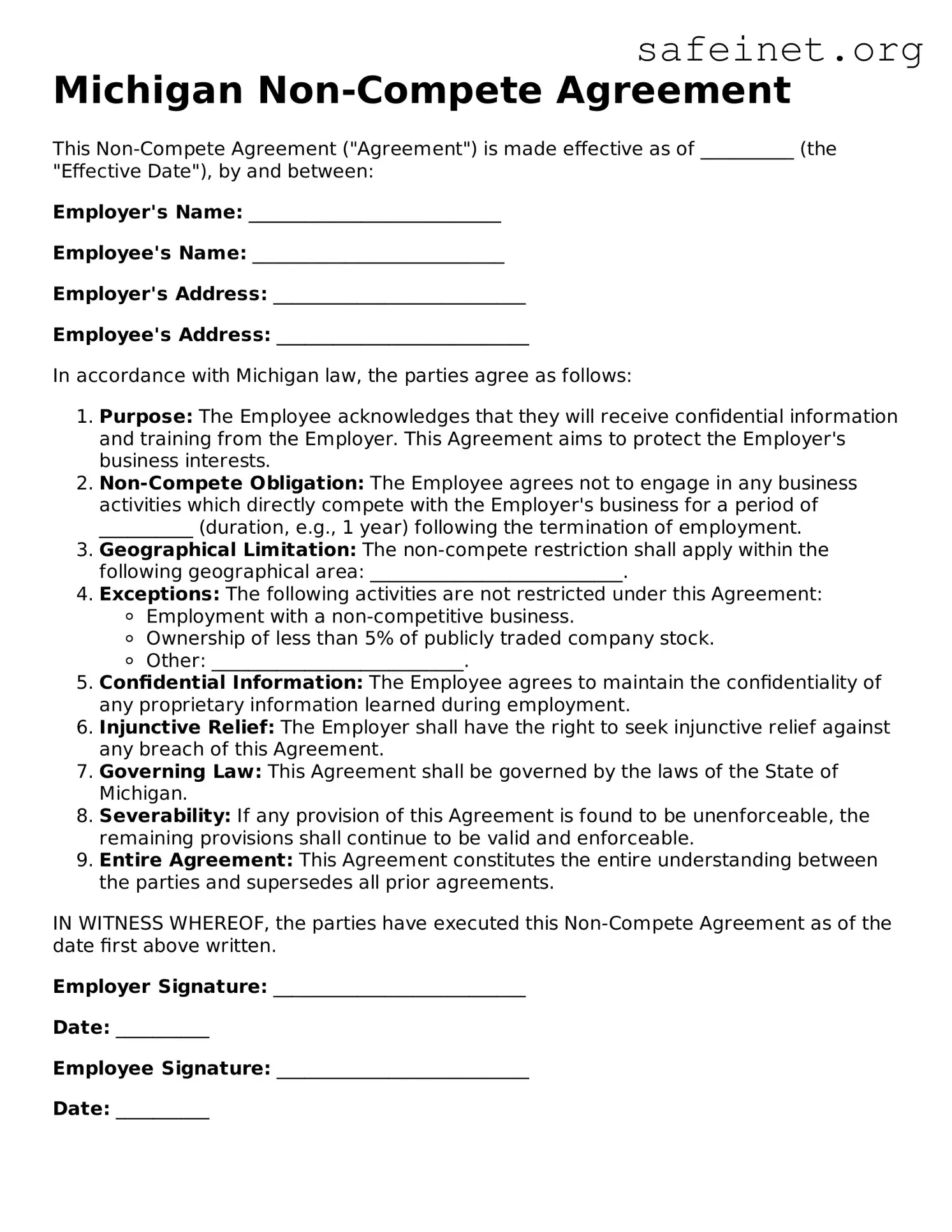What is a Non-compete Agreement in Michigan?
A Non-compete Agreement is a legal contract between an employer and an employee that restricts the employee from working for competitors or starting a competing business for a specified duration after leaving the company. In Michigan, these agreements are enforceable, but they must meet certain criteria to be valid.
Are Non-compete Agreements legal in Michigan?
Yes, Non-compete Agreements are legal in Michigan. However, the law emphasizes that these agreements must be reasonable in terms of duration, geographic scope, and the activities they restrict. Courts will evaluate whether the agreement protects legitimate business interests without unfairly restricting the employee’s ability to earn a living.
What are the key elements that make a Non-compete Agreement enforceable in Michigan?
For a Non-compete Agreement to be enforceable in Michigan, it should generally contain the following key elements: a clear statement of the restricted activities, a reasonable duration of the restriction (usually no longer than one to two years), a defined geographical area where the restrictions apply, and consideration, often in the form of a job offer or promotion.
How long can a Non-compete Agreement last in Michigan?
The duration of a Non-compete Agreement in Michigan should be reasonable. Typically, agreements lasting one to two years after the end of employment are viewed as acceptable. Longer durations may face legal scrutiny and could be deemed unenforceable, depending on the circumstances involved.
Can I negotiate the terms of a Non-compete Agreement?
Yes, employees in Michigan can negotiate the terms of a Non-compete Agreement before signing it. It is advisable to clearly express concerns regarding restrictive clauses, duration, or geographical scope. Employers may be open to adjustments, especially for valuable employees.
What happens if I violate a Non-compete Agreement?
If you violate a Non-compete Agreement in Michigan, your former employer may take legal action against you. This can include seeking an injunction to prevent you from working for a competitor or from starting a competing business. They may also seek damages for losses incurred as a result of the violation.
What should I do if I am presented with a Non-compete Agreement?
When presented with a Non-compete Agreement, it is crucial to read the document thoroughly. Consider seeking legal advice to understand the implications fully. A legal professional can help you evaluate the agreement’s terms and guide you on whether to accept, negotiate, or decline.
Are there any circumstances when a Non-compete Agreement might not be enforceable?
Yes, there are circumstances under which a Non-compete Agreement may not be enforceable. For example, if the agreement is deemed too broad, the restrictions do not protect legitimate business interests, or the agreement lacks sufficient consideration, the courts may rule it invalid. Additionally, non-compete agreements that are signed under duress or without mutual agreement may also be unenforceable.
